Tehran denies any talks with Washington despite Trump comment
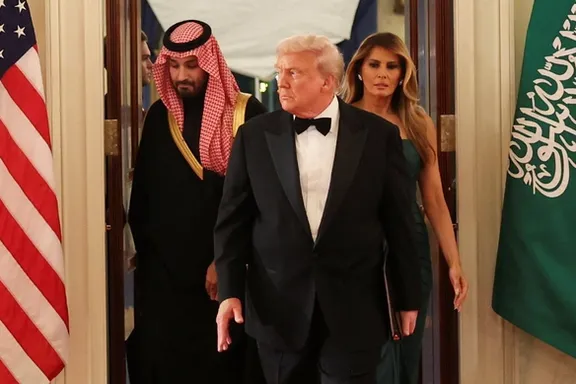
Iran said on Wednesday that no negotiation process is underway with the United States, rejecting President Donald Trump’s claim a day earlier that the two sides had begun talks.

Iran said on Wednesday that no negotiation process is underway with the United States, rejecting President Donald Trump’s claim a day earlier that the two sides had begun talks.
“There is no process of negotiation between Iran and the United States,” Foreign Ministry spokesman Esmail Baghaei told reporters in Tehran.
“As the foreign minister has said many times, talking to a side that does not believe in mutual respect and takes pride in military aggression against Iran has no logical justification.”
Trump said on Tuesday that the United States was talking with Iran and that he believed Tehran wanted a deal “very badly.”
Speaking at the White House alongside Saudi Crown Prince Mohammed bin Salman, he said, “I am totally open to it, and we’re talking to them, and we start a process.”
The US president added that “it would be a nice thing to have a deal with Iran,” saying he thought the two sides could reach one with Saudi support.
Washington and Tehran held indirect contacts earlier this year over Iran’s nuclear program and regional issues, but the talks stopped after Israel launched a 12-day military campaign in June, followed by US strikes on key Iranian nuclear sites.
No message to US via Riyadh
Baghaei also addressed reports about a recent message from Iranian President Masoud Pezeshkian to the Saudi crown prince, saying it had only bilateral content.
He said the message, delivered by the new head of Iran’s Hajj and Pilgrimage Organization, expressed Iran’s gratitude for Saudi Arabia’s assistance to Iranian pilgrims last year and stressed the need for continued cooperation for this year’s pilgrimage.
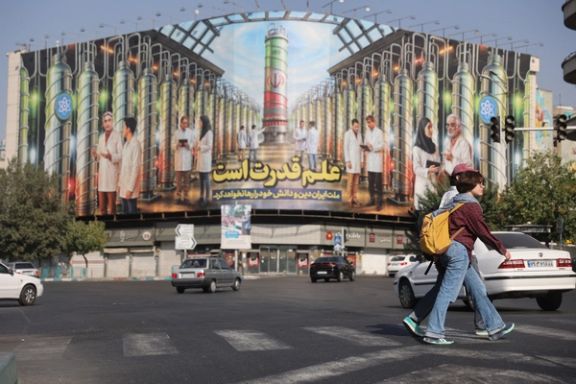
Iran would consider resuming nuclear talks with the United States but will only discuss limits on the degree of uranium enrichment, not the continuation of enrichment itself, a senior adviser to Supreme Leader Ali Khamenei told CNN.
Kamal Kharrazi said Tehran’s conditions for returning to the table remain unchanged since US and Israeli strikes on Iranian nuclear sites in June.
Kharrazi said any renewed dialogue must be conducted on equal footing and mutual respect, adding that Washington must show it is ready “to engage with us on the conditions that we put.”
He said an agenda would need to be prepared in advance to avoid ambiguity.
He argued that President Donald Trump “does not believe in diplomatic engagement but rather prefers to use force to achieve his objectives,” and insisted that enrichment would continue because Iran requires nuclear fuel for power and medical use.
Tehran’s expanding ballistic missile program, he added, will not be included in talks. “It is only the nuclear issue we will discuss with the United States,” he said.
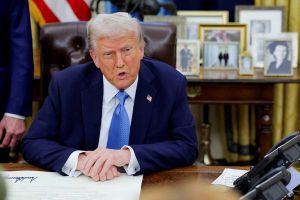
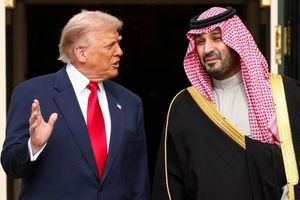
Talks derailed by June strikes
The United States and Iran had been engaged in indirect discussions earlier this year when Israel launched a surprise attack in mid-June, prompting US airstrikes on three Iranian nuclear facilities.
Kharrazi said the extent of the damage has still not been fully assessed and cautioned that further confrontation remained possible. “Everything is possible. But we are ready for that,” he said.
Iranian officials told CNN this week that despite “serious damage to infrastructure, machineries and buildings,” the program remains “intact,” even though enrichment is not currently taking place due to the attacks.
During the summer contacts, Washington insisted Tehran halt all enrichment, while Iran maintained it would continue low-purity domestic production.
Kharrazi said limits on enrichment levels, rather than the activity itself, could form the basis of future negotiations. He added that a structured arrangement could allow Iran to continue enrichment while providing assurances it is not pursuing weapons.
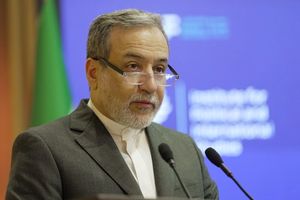
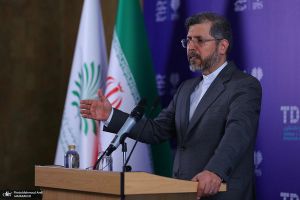
Possible pathway via an enrichment consortium
According to a CNN report in June, the US had proposed joining a multinational consortium to oversee low-level enrichment inside Iran. Kharrazi said he believed an understanding could be reached on such a framework as long as Iran retains control over its fuel cycle.
“If there would be genuine negotiations,” he said, “there are ways and means how to ensure that Iran can continue its enrichment and at the same time assure the others that it's not going to look for nuclear weapons.”
He also urged Trump to shift tone: “Start with a positive approach with Iran. If it will be positive, certainly it will be reciprocated. But they have to refrain from any force against Iran.”
Trump told reporters on Tuesday that Iran “very badly” wants a deal and that talks were already underway.
Standing beside Saudi Crown Prince Mohammed bin Salman, he said: “I am totally open to it, and we're talking to them, and we start a process.”
He said his administration could have reached an agreement before the June war, “but that didn't work out,” while the crown prince said Riyadh would “do our best to help” Washington and Tehran reach a settlement.
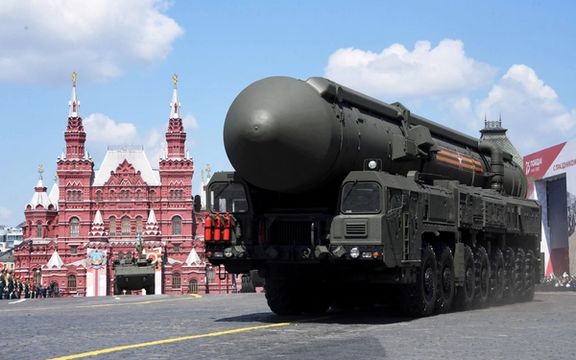
Iranian scientists linked to its defense establishment made a second covert trip to Russia last year as part of what the United States says is an effort to obtain dual-use technologies with potential nuclear weapons applications, the Financial Times reported on Tuesday.
The previously undisclosed visit, held between November 7 and 11, 2024, involved physicists and engineers travelling on consecutively numbered diplomatic passports and meeting Russian institutes connected to military research, the report said, citing documents it obtained and corroborated through corporate filings, sanctions records, leaked travel data and other correspondence.
According to the report, the exchanges form part of a broader pattern of contact between Russian military-linked research centers and Iran’s Organization of Defensive Innovation and Research (SPND), a Defense Ministry body long sanctioned by Washington for alleged work on nuclear weapons design.
Jim Lamson, a senior research associate at the James Martin Center for Nonproliferation Studies and a former CIA analyst, told the FT the evidence indicated that Iran’s defense-linked scientists were “seeking laser technology and expertise that could help them validate a nuclear weapon design without conducting a nuclear explosive test.”
Tehran maintains its nuclear program is entirely peaceful, and Moscow has publicly opposed the Islamic Republic obtaining a nuclear weapon.
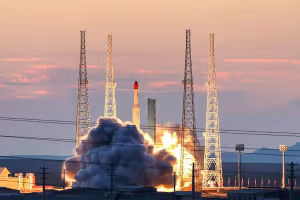
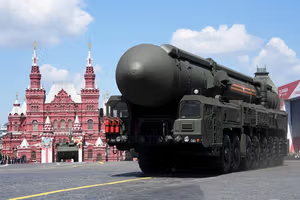
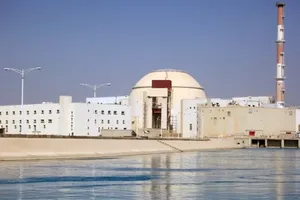
The delegation met Laser Systems, a Russian company under US sanctions that develops equipment for both civilian and classified military use.
The November 2024 mission followed an earlier set of meetings revealed in August, which showed that a Vienna-linked procurement network involving DamavandTec – and using diplomatic passports issued by Iran’s foreign ministry – had arranged introductions between Iranian nuclear scientists and Russian companies with defense and intelligence ties.
Academic and institutional records reviewed by the FT showed the men who travelled were not DamavandTec employees but researchers from Shahid Beheshti University, Islamic Azad University of Kashan and Malek Ashtar University of Technology, an institution under US and EU sanctions for its role in nuclear-related activity.
The FT said the visit had been framed in invitations as an opportunity for technological collaboration, though the scope of any technology transfer between the two sides remains unclear.
The findings come against the backdrop of years of Western allegations that SPND operates covert procurement networks in Europe and Asia to source dual-use equipment.
An investigation by Iran International in 2025 documented a Vienna-based hub tied to SPND-linked front firms purchasing neutronics-related and other sensitive components with potential applications in nuclear weapons design.
Washington has sanctioned more than 30 SPND scientists and multiple affiliated entities, saying the organization oversees “dual-use research and development activities applicable to nuclear weapons and nuclear weapons delivery systems.”
In 2024, Iran’s parliament formally recognized SPND under Iranian law, placed it under the authority of the Supreme Leader and exempted its budget from parliamentary oversight.
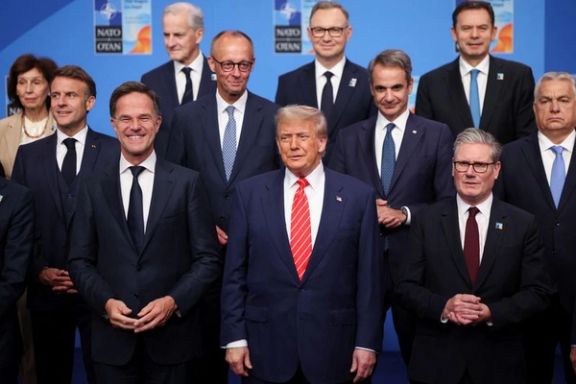
The United States and three European allies urged Tehran to immediately restore its cooperation with the UN nuclear watchdog in a draft resolution they submitted to the IAEA Board of Governors which will meet later this week in Vienna.
"Iran must ... provide the (International Atomic Energy) Agency without delay with precise information on nuclear material accountancy and safeguarded nuclear facilities in Iran," they wrote in the draft submitted on Tuesday.
The United States and its allies also demanded Tehran grant the Agency "all access it requires to verify this information," according to the draft resolution which diplomats cited by Reuters said is highly likely to be passed.
The IAEA board "calls upon Iran to act strictly in accordance with" the IAEA Additional Protocol "and to fully implement this measure without delay", the resolution added.
Iran's deputy foreign minister Kazem Gharibabadi warned earlier on Tuesday that an agreement Tehran signed with the UN nuclear watchdog in September would be compromised by the US-European IAEA resolution.
The Cairo deal allowed the IAEA to resume inspections at all declared Iranian nuclear facilities including those damaged in Israeli and US strikes in June.
But after the three European powers restored UN sanctions on Iran in late September through the so-called snapback mechanism, Iranian officials said the reimposed sanctions would “certainly halt” the deal.
Iran’s nuclear chief Mohammed Eslami said on Sunday that US and Israeli strikes on its civilian nuclear facilities during the June conflict had damaged the credibility of the UN nuclear watchdog, accusing the IAEA of failing to condemn the attacks.
Iran has yet to allow UN inspectors to visit nuclear sites hit by the Israeli and US airstrikes, the IAEA said in a confidential report last Wednesday, saying verification of Tehran’s enriched uranium “long overdue.”
“The Agency’s lack of access to this nuclear material in Iran for five months means that its verification is long overdue,” the IAEA said in a report to member states seen by Reuters.
"It is critical that the Agency is able to verify the inventories of previously declared nuclear material in Iran as soon as possible in order to allay its concerns ... regarding the possible diversion of declared nuclear material from peaceful use," the agency quoted the IAEA report as saying.
The Vienna-based nuclear watchdog has not been able to confirm the amount of enriched uranium in Iran’s possession since June, when Israeli and US strikes hit its main enrichment sites at Natanz, Isfahan and Fordow during the 12-day conflict.
Before the attacks, inspectors had verified about 440 kilograms of uranium enriched to 60 percent purity—enough, if further refined, for roughly 10 nuclear weapons under IAEA criteria.
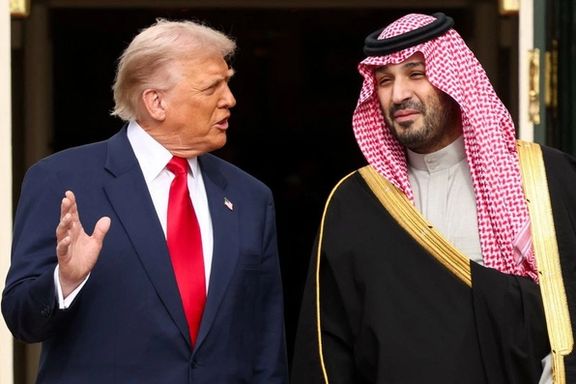
US President Donald Trump said on Tuesday he seeks a deal with Iran and believes Tehran does too, speaking alongside Saudi Crown Prince Mohammed bin Salman who said he would try to help Tehran and Washington reach a deal.
"Iran does want to make a deal. I think they very badly want to make a deal. I am totally open to it, and we're talking to them, and we start a process," Trump said.
"It would be a nice thing to have a deal with Iran," he added during a joint press conference at the White House with Saudi Arabia's powerful crown prince, who promised boost Riyadh's investment in the United States to $1 trillion.
Washington engaged in talks with Tehran over its disputed nuclear program earlier this year with a 60-day ultimatum.
On the 61st day, June 13, Israel launched a surprise military campaign which was capped with US strikes on June 22 targeting key nuclear sites in Esfahan, Natanz and Fordow.
Trump said on Tuesday his administration could have reached an agreement with Tehran before the June war, "but that didn't work out."
"Something will happen there. But they would very much like, I mean, they may say something else, but they would very much like to have a deal."
Trump also defended the US airstrikes on Iranian nuclear sites, calling it "the right thing to do".
Addressing the crown prince Trump added, "We put you in a very good position."
Riyadh ready to help
The crown prince told the same press conference he was ready to help Iran and the United States reach a deal that would also benefit the Middle East.
"I will be working closely together on the (Iran) issue, and we will do our best to help to reach a deal between America and Iran," he said.
"We believe it's good for Iran's future to have a good deal that that would satisfy the region and the world. So we will do our best to see that they happen."
The surprise Israeli attacks that started on June 13 were publicly condemned by Iran's Arab neighbors in the Persian Gulf which oppose what they see as Iran's bid for hegemony in the region but seek calm to boost domestic growth agendas.
Following the 12-day war, they were quietly relieved that the campaign weakened the Islamic Republic, security experts told Iran International at the time, though Tehran's Arab rivals prefer a defanged Iran to a regime change that would lead to instability.
The campaign saw Israel gain control of Iran's airspace within days as it assassinated top military leaders and degraded Iranian missile capabilities.
However, any prolonged conflict or upheaval inside Iran would be viewed as a potential risk to the regional countries' tourism, trade and foreign investment, a taste of which was offered by the closing of air space across the Persian Gulf and crashing stock markets amid the conflict.
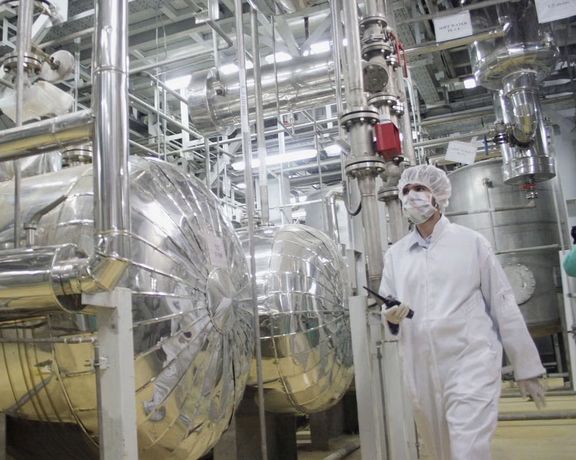
Iran’s continued breaches of its nuclear obligations will remain on the agenda at the upcoming quarterly meeting of the International Atomic Energy Agency Board of Governors, a German foreign ministry spokesperson told Iran International.
"The reports of the IAEA Director General speak for themselves, as they highlight Iran’s ongoing violations of its key obligations. This particularly concerns the still-unclarified whereabouts of the stocks of highly enriched uranium," the spokesperson said.
Last week, in a confidential report cited by Reuters, the IAEA said Iran has yet to allow UN inspectors to visit nuclear sites hit by Israeli and US airstrikes in June, adding that the verification of Tehran’s enriched uranium is “long overdue.”
“The Agency’s lack of access to this nuclear material in Iran for five months means that its verification is long overdue,” the IAEA said in the report to member states.
Under its obligations as a party to the Nuclear Non-Proliferation Treaty, Iran must submit a detailed report on the status of the bombed facilities “without delay,” but has yet to do so, the IAEA added. Only after such a report is received can inspectors return to the damaged sites.
The spokesperson added that the E3 — Germany, France and the United Kingdom — have repeatedly raised their concerns on Iran's violations publicly and they were the reason the troika triggered the so-called snapback of sanctions.
The E3 triggered the snapback mechanism under the UN Security Council Resolution 2231 which led to the restoration of UN sanctions on Iran in late September.
European states are expected to discuss a draft resolution critical of Iran at the IAEA Board of Governors meeting later this week.
According to the spokesperson, no specific agenda item is planned on the implementation of UN Security Council Resolution 2231, but Berlin said the issue will still be addressed based on reporting from the IAEA director general and the UN resolutions that re-entered into force following the snapback mechanism.
European countries and the United States have called for renewed talks between Washington and Tehran, but Iran says it will not renounce domestic uranium enrichment or discuss its missile program and its support for regional armed groups.
"Germany, together with its E3 partners France and the United Kingdom, continues to advocate for a diplomatic solution to the Iranian nuclear program," the spokesperson added.
Earlier this month, IAEA chief Rafael Grossi said although the June attacks on Iran's Natanz, Isfahan and Fordow nuclear sites “severely damaged” the country's nuclear program, the country retains the knowledge and material “to manufacture a few nuclear weapons."
Before the attacks, inspectors had verified about 440 kilograms of uranium enriched to 60 percent purity—enough, if further refined, for roughly 10 nuclear weapons under IAEA criteria.
Iranian officials, including Iran's foreign minister Abbas Araghchi, have repeatedly said the enriched uranium is buried "under rubble" left from the June strikes.
Tehran denies seeking a bomb but Western powers and Israel doubt its intentions.